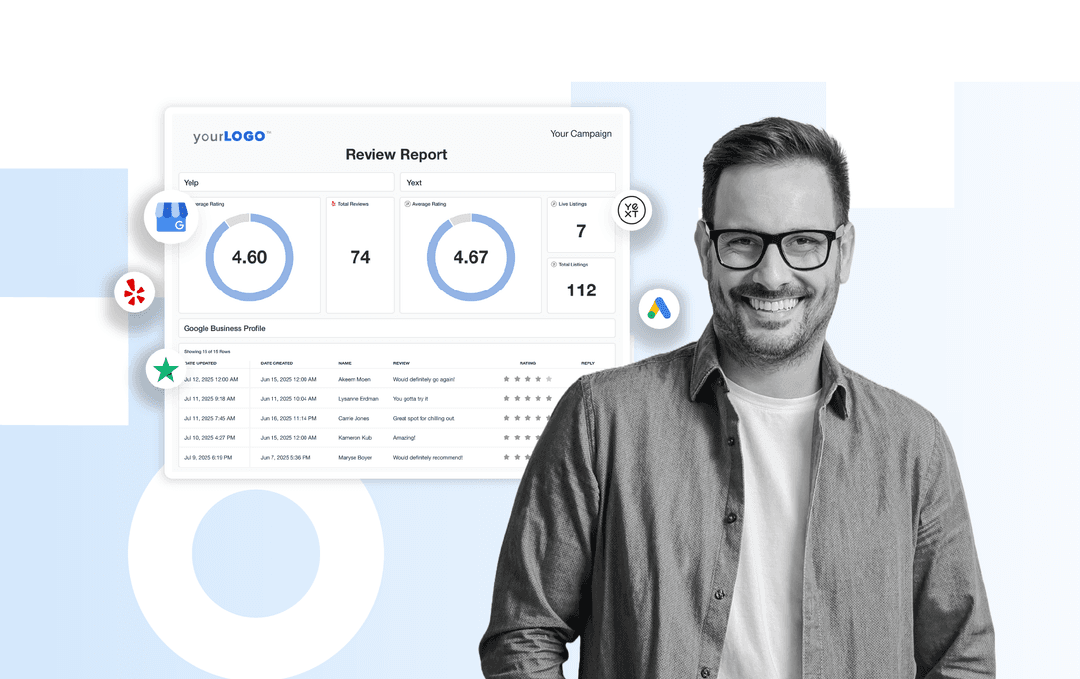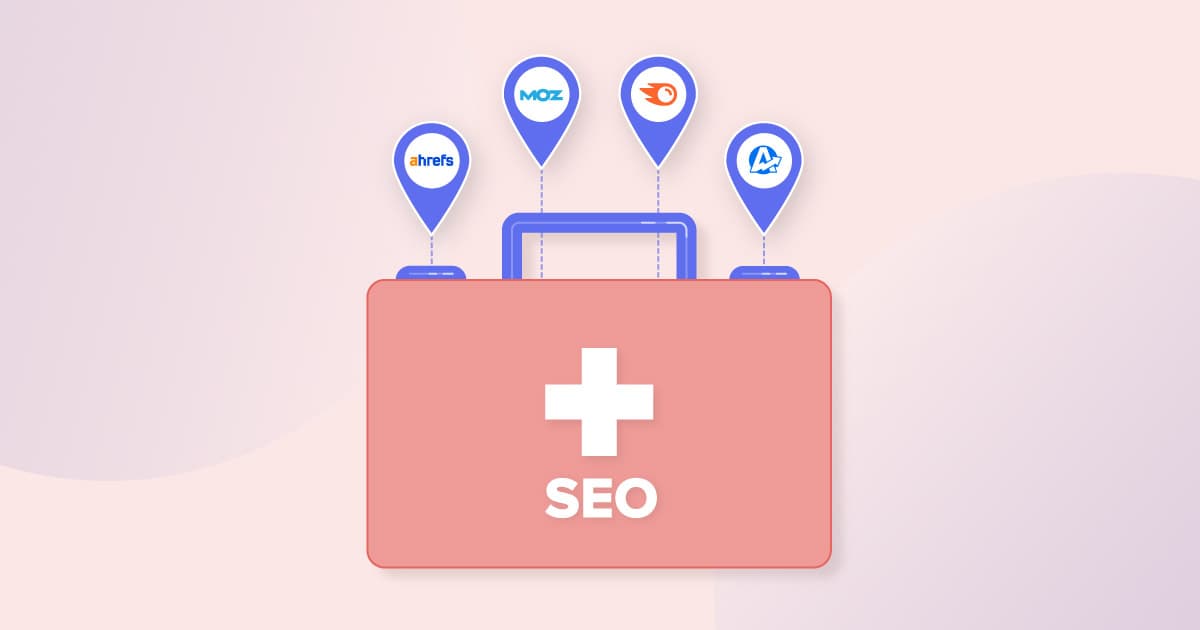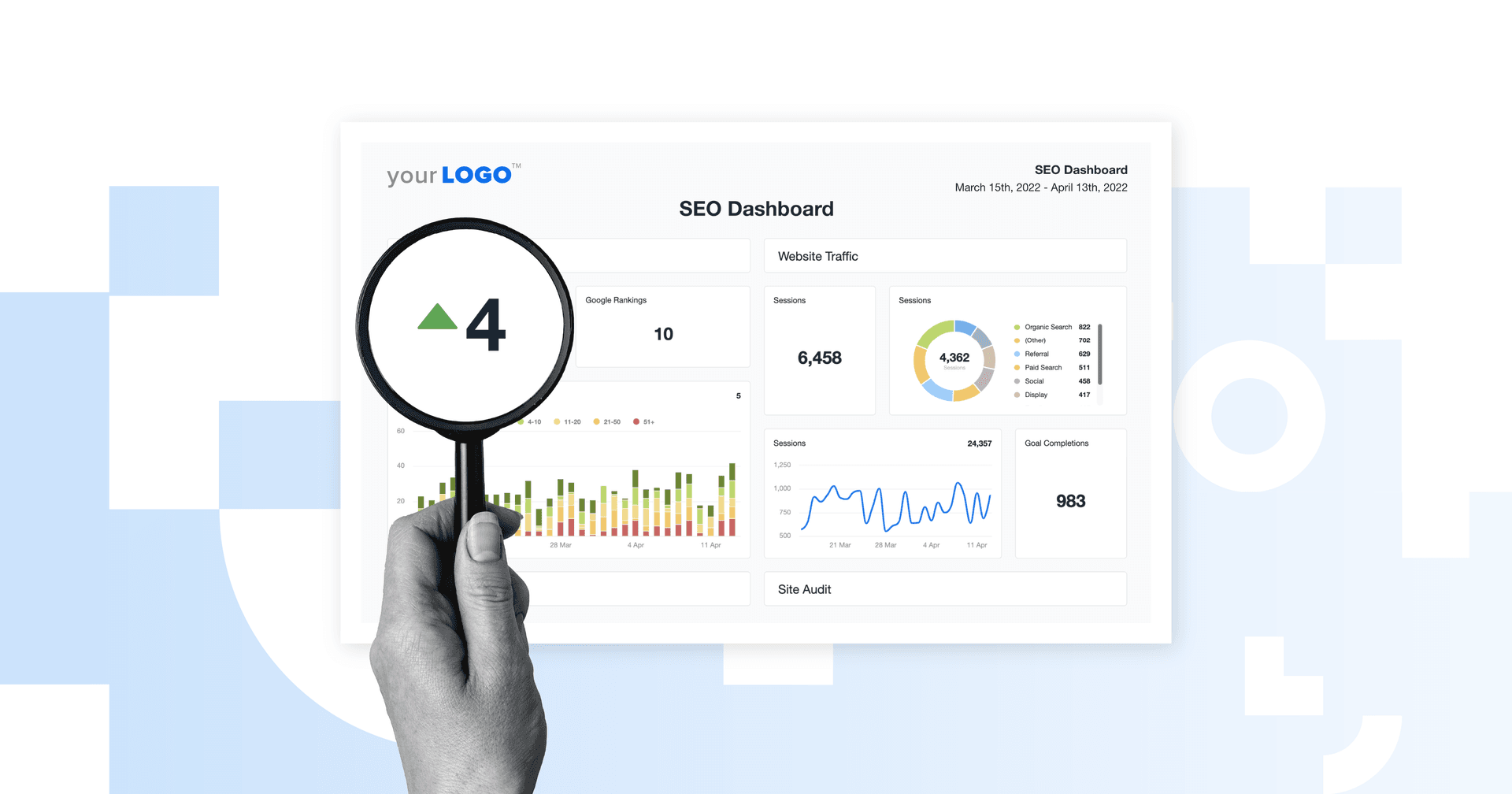Table of Contents
QUICK SUMMARY:
Google search results have the power to make or break a brand. This guide to SEO reputation management covers the strategies, tools, and tactics agencies need to take control of search results, manage online reviews, and shape how brands are seen online in 2025.
When someone searches for your client’s brand, what do they find?
SEO reputation management is about shaping the search engine results that define a brand online. It means controlling what ranks for branded keywords, managing online reviews, and responding strategically to negative reviews or press.
These days, online reputation management isn't just a PR concern, but a fundamental part of search engine optimization. With AI overviews disrupting SERP performance, and the search game changing faster than ever, reputation management should be a foundational element in your agency's SEO client strategy.
Today, we're sharing a guide to SEO reputation management, including tips to enhance client results, and the best tools to help your agency get the job done.
What is reputation management in SEO?
SEO reputation management is the strategic process of shaping what appears in search engine results pages (SERPs) when customers search for a brand. It’s about ensuring that positive content, reviews, and owned assets dominate the first page, while minimizing the visibility of bad reviews and outdated or off-brand content.
While overall online reputation management (ORM) focuses broadly on customer perception across all digital touchpoints, SEO reputation management zeroes in on search engines. A brand’s Google Business Profile, online reviews, news coverage, and third-party mentions all influence its brand perception in organic search.
If negative reviews or critical results outrank positive content, the brand’s reputation online suffers. Agencies help clients manage their reputation through SEO by:
Building and optimizing web content to own page one for branded searches
Encouraging satisfied customers to leave reviews on key platforms
Ensuring helpful review responses are added quickly, especially on bad reviews
In practice, this work sits at the intersection of SEO strategy, content marketing, and online reputation management. The goal is to shape the brand narrative where customers find it first—on Google.
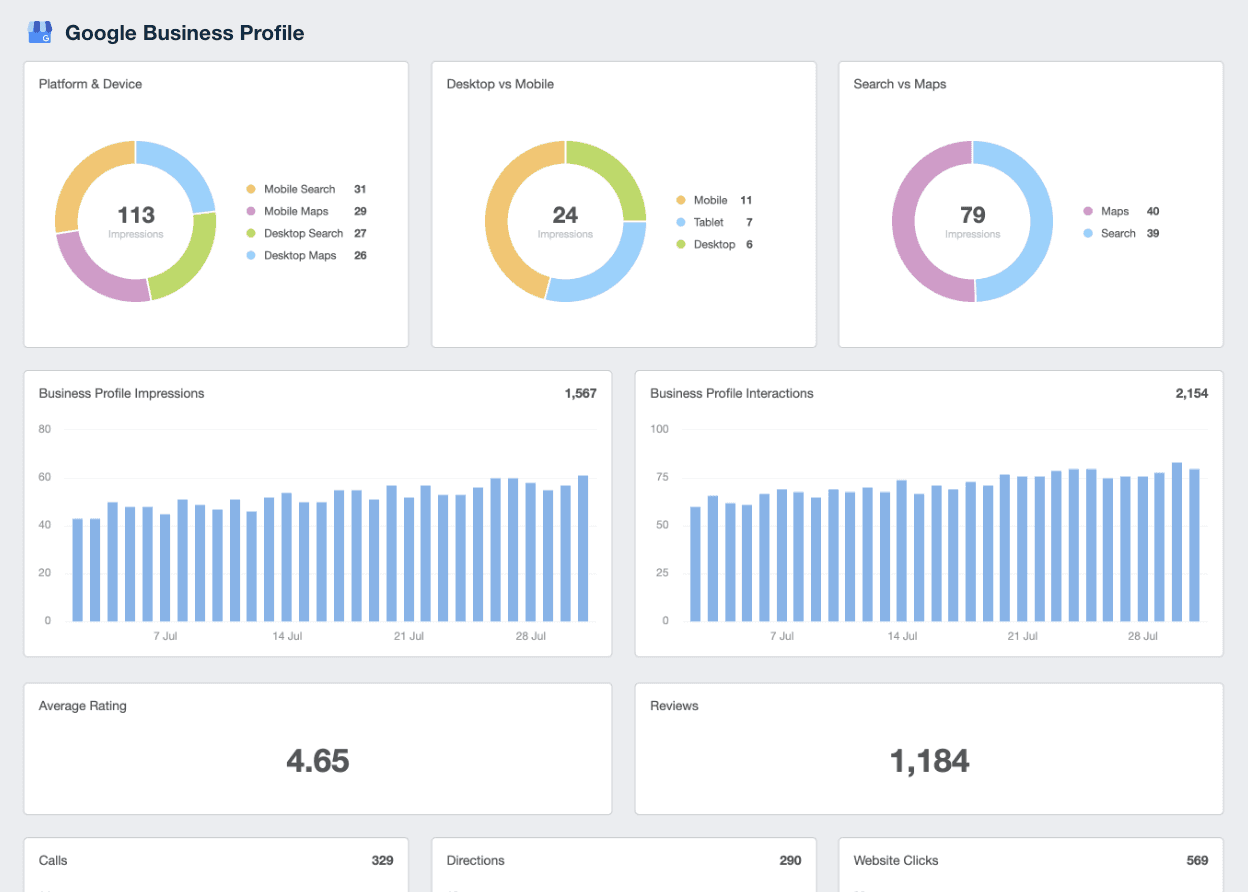
Keep track of your clients’ GBP with the help of AgencyAnalytics! Include this data in your SEO reports, alongside data from more than 80 marketing platform integrations. Try it free for 14 days!
Why SEO reputation management is becoming non-negotiable
Google reviews, social media profiles, news stories, customer feedback, and branded content significantly influence how new customers perceive a brand and make purchase decisions. The right SEO reputation management strategy shapes how all of these appear in the SERP, placing positive results front and centre.
For agencies, SEO reputation management is essential both for your clients and your own brand. Your agency's top ranking results should demonstrate impeccable SEO reputation management to show that you've got the chops to replicate those results for your clients.
Let's dig a bit deeper into what this means for your clients, and for your own brand:
For SEO clients
Agencies can’t rely solely on organic SEO and paid ads to build a client’s brand image. Managing online reviews, optimizing business profiles, and tracking branded keywords are essential to shaping how potential customers perceive the business.
Encouraging satisfied customers to leave reviews across key platforms is one of the simplest, highest-impact tactics available. Positive reviews on Google, Trustpilot, and other review platforms influence the purchase decisions of potential customers.
For example: Suppose a regional HVAC company has a 2.8-star rating on their Google Business Profile, with negative reviews from over 5 years ago consistently appearing in branded local searches. Even after improving service quality, new customers searching the local business still see the outdated negative feedback, costing them customers.
Your agency might implement strategies to get more local business reviews for the company. A multi-channel approach could include follow-up emails to collect customer feedback, QR codes on service agreement documents, and having local teams request Google reviews when they wrap up their work.
For agencies
Just as you need to foster a positive online reputation for your clients, you also need to be doing your own online reputation management for your agency. If you can't walk the talk, why should a prospective client trust you to manage their brand's reputation online? A Google search of your agency should surface positive reviews, strong case studies, and a good social media presence.
For example: Say you're a newer agency in the process of building out your client base. You've done a great job of dominating the first page of Google search results with your website, social media pages, case studies, and your blog. The one thing that's missing? Customer feedback.
You know that consumers read reviews, and prospective clients will want to see strong positive reviews when they look up your agency. So, you decide to inject timely offers for your existing clients when they leave a review on Google or other review sites.
Getting more customers to leave feedback isn't just for local businesses—it's an effective reputation management strategy for all types of sellers and service providers.
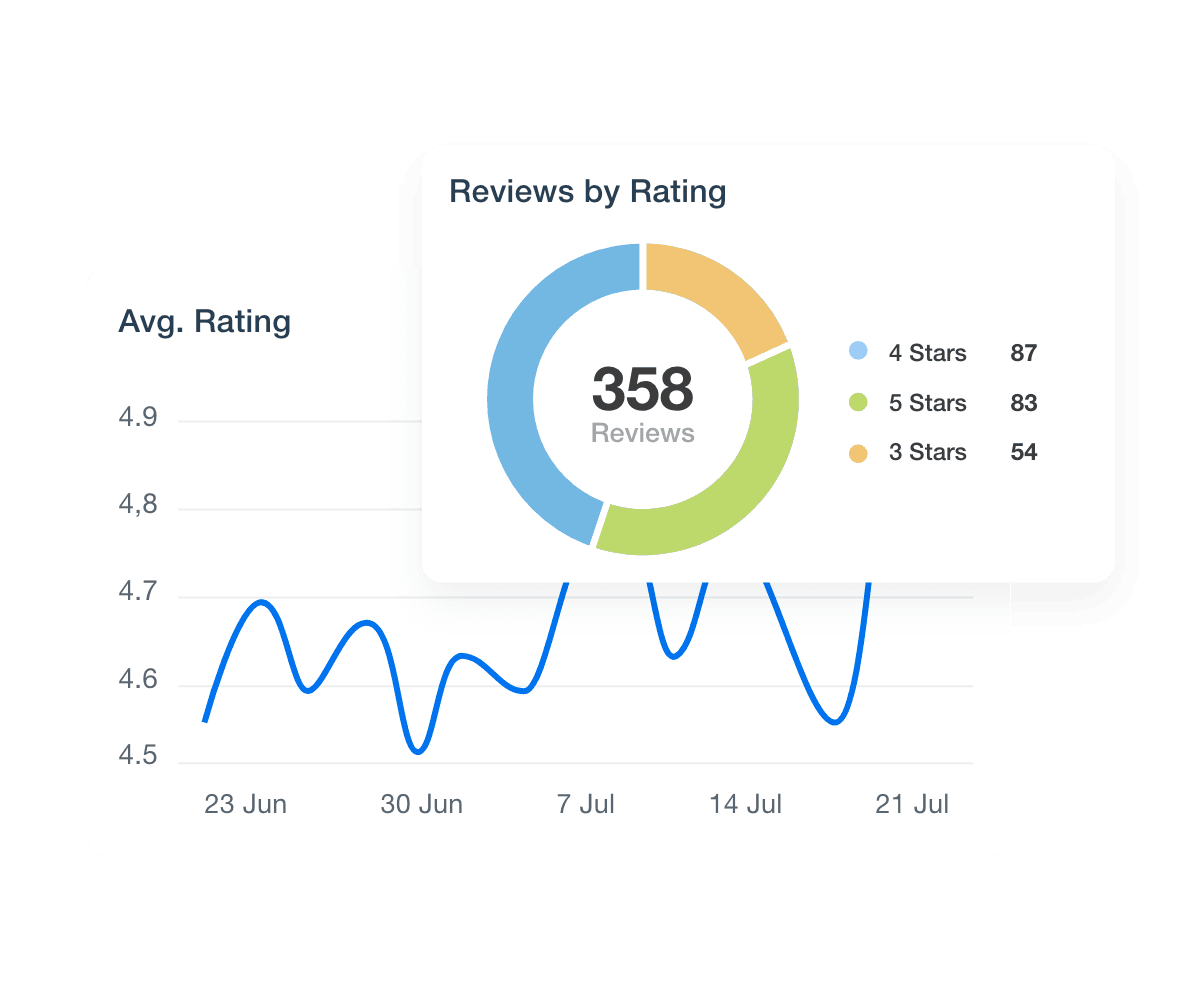
4 strategies to improve SEO reputation management
Now—we covered a few scenarios and tactics in the last section, but let's dig deeper into the strategies that lie in that sweet spot between online reputation management (ORM) and search engine optimization (SEO).
Each of these serves its own purpose, and together they create the foundation for building a strong online reputation in organic search results for a brand. We'll cover why each tactic is essential, and key ways to implement it for your client.
1. Own the front page
According to Global Tech Stack, 27.6% of all Google clicks go to the #1 result, and only 0.44% of users navigate to the second page of Google results. This is why page one is the first frontier of online reputation management.
Top branded search results should be filled with positive, authoritative, and controlled assets. Results from both first-party and third-party sites are beneficial, so long as they accurately represent a brand online. If competitors, negative reviews, or irrelevant content dominate page one, it damages the first impression potential customers get when they Google your client.
How to own the front page:
Website and landing pages: Make sure your client's main site is technically sound, loads quickly, and is optimized for branded search terms.
Google business profile: Claim and fully optimize your client's Google Business Profile listing with updated business info, images, and regular posts.
Social media sites: LinkedIn, Facebook, Twitter, Instagram, YouTube, TikTok—actively manage these profiles to show recent updates and brand activity. This also helps optimize image and video search results.
Press and PR content: Secure media coverage and guest posts on reputable sites. This is a pillar of good reputation management, and these authoritative mentions not only boost brand visibility, but often outrank negative content.
2. Monitor mentions & reviews
In Brightlocal's 2025 local consumer review survey, 83% of consumers reported using Google to find business reviews. So it’s essential to stay on top of what’s being said about a brand online.
Monitoring involves actively tracking conversations about your client online—whether it’s reviews, social media comments, blog mentions, or news articles. Early detection of negative sentiment enables faster response and damage control. Plus, identifying common customer concerns helps you proactively address them in Google search results.
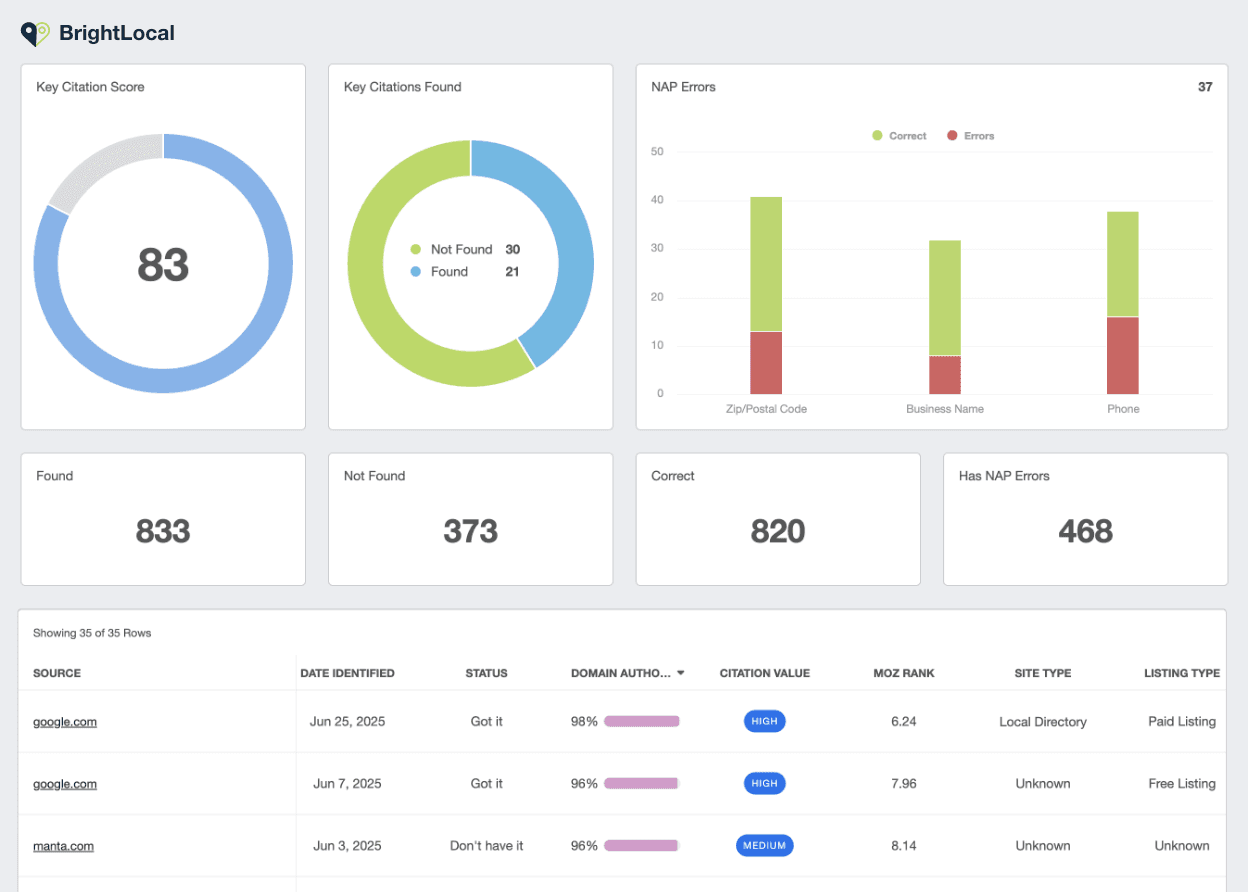
Manage client reviews and track citations with the BrightLocal integration! Try it with your free 14-day AgencyAnalytics trial.
How to monitor mentions & reviews:
Set up alerts: Use tools like Google Alerts, social listening platforms, and brand monitoring software to track keywords, phrases, and mentions across the web.
Review platforms: Regularly check and respond to reviews on Google Business Profile, Yelp, Trustpilot, and industry-specific review sites. Keep an eye out for fake reviews and report them when they crop up.
Social media sites: Monitor comments, tags, and messages on platforms where the brand is active—and ones where it's not. Moderating comments on a client's Instagram profile is great, but if there's an unhinged Reddit threat bashing their brand, you need to find a way to address that effectively, too.
Internal dashboards: Consolidate mentions and reviews into a single reporting dashboard to make monitoring manageable and actionable. Tracking a brand's online reputation is a part of general SEO tracking best practices.
3. Build positive content
This strategy involves creating and publishing fresh, high-quality content that reinforces the client’s brand values, answers customer questions, and highlights successes. Positive content both attracts organic traffic and pushes down negative search results. Since Google rewards fresh, relevant content, regularly publishing positive content helps foster more positive results.
How to build positive content:
Company blog: Create a branded blog with articles addressing customer pain points, industry trends, or company news. Develop core SEO topical pillars and produce evergreen assets that rank for long-tail branded and related keywords.
Customer testimonials and case studies: Highlight satisfied customers and success stories, and implement ongoing efforts to continuously get fresh customer reviews. Brightlocal's 2025 local consumer review survey found that 47% of consumers said a review had to be from within the last week or month to impact their decision about the business.
Press releases and media mentions: Secure coverage of awards, events, or new product launches to amplify positive brand news.
Google posts and social updates: Use Google Business Profile posts and social media to highlight timely offers, new features, or community involvement.
Industry and local directories: Listings on niche review sites also build brand authority, so maintain accurate info and solicit positive reviews there.
4. Suppress negative results
Suppression aims to push unwanted or harmful search results below the first page of Google, minimizing their visibility to potential customers. Negative results rarely disappear completely, so your agency needs to outrank them with positive or neutral content to reduce their impact.
How to suppress negative results:
Content saturation: Flood branded search results with optimized, positive content as outlined above.
Link building: Build internal and external backlinks to high-value positive pages to boost their ranking.
Optimize existing assets: Refresh older blog posts, press releases, or profiles with updated information and SEO best practices.
Flag fake or defamatory content: Work with review platforms and search engines to report fake reviews or harmful misinformation in negative reviews.
Schema markup: Use structured data to improve snippets and increase click-through rates on positive listings.
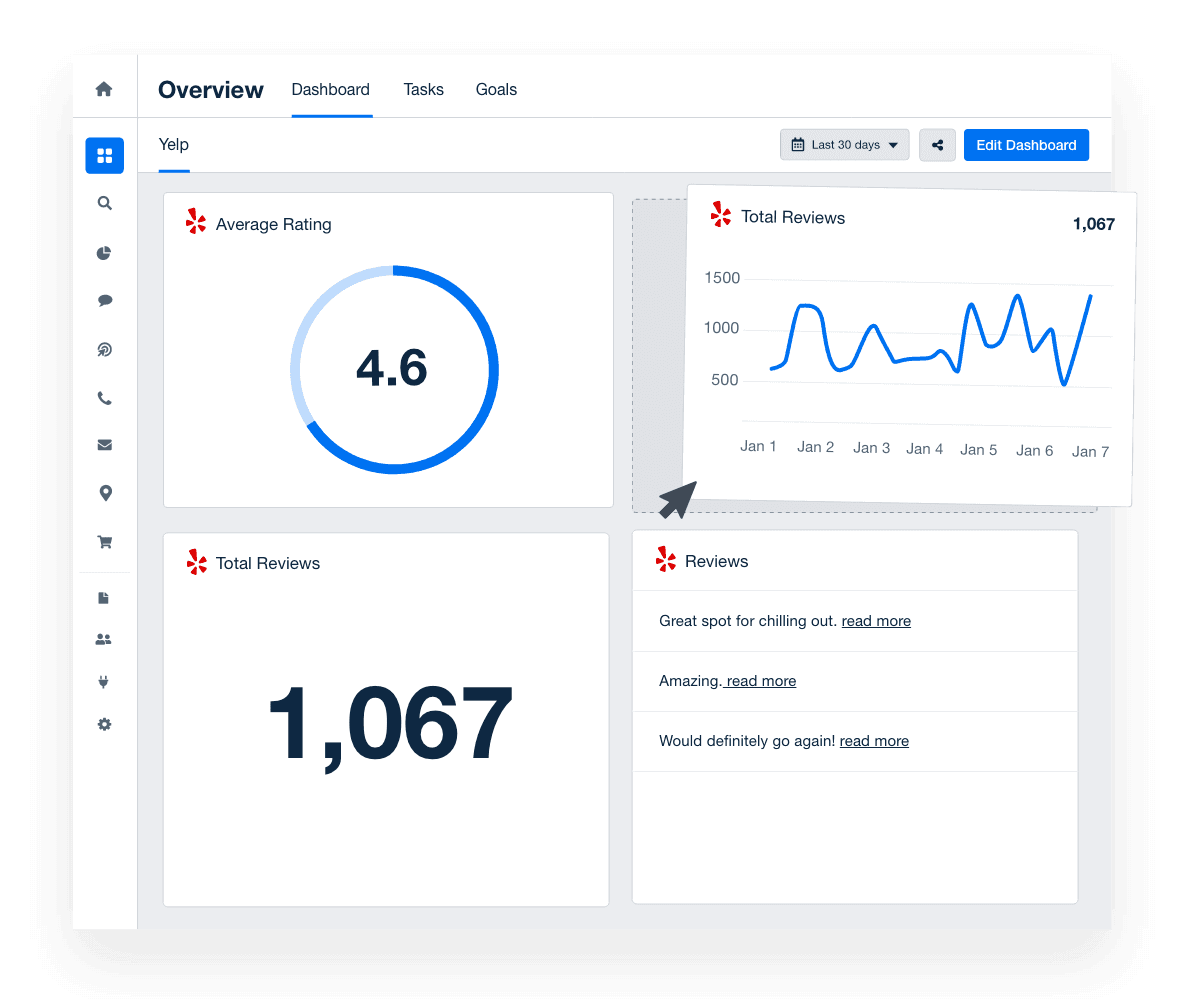
Create a custom Yelp dashboard to track SEO reputation management efforts for your clients. Sign up for a free 14-day AgencyAnalytics trial!
Best tools for SEO reputation management
It's important to understand the role of SEO in online reputation management, and implement core tactics to improve a company's online reputation.
Just as important? Having the right toolkit to support and track these efforts.
Without a strong tech stack, you risk missing opportunities or failing to react fast enough to manage a client's online reputation. Here are some of the top tools your agency might leverage in your SEO online reputation management efforts:
BirdEye: Best for centralized review management
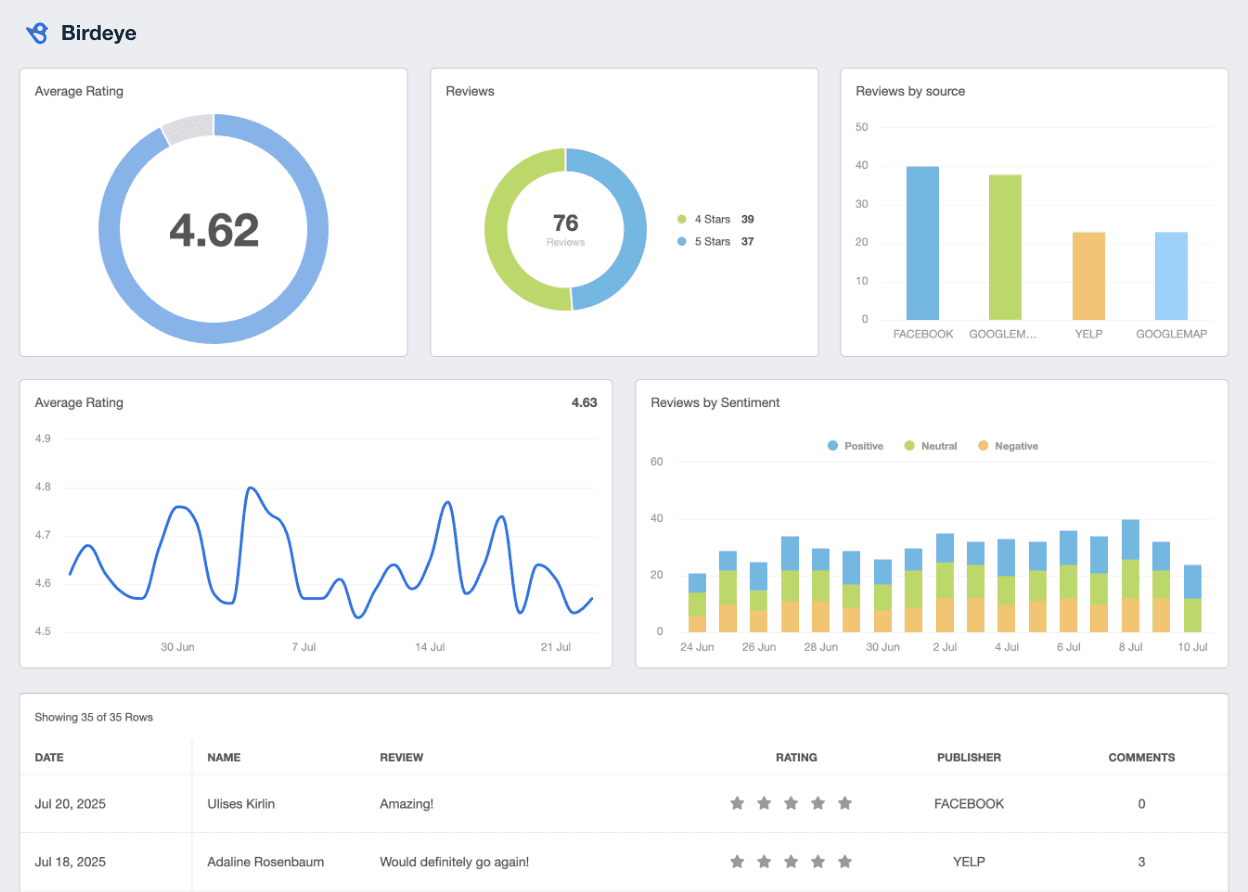
BirdEye lets agencies collect, monitor, and respond to reviews across multiple platforms, automating feedback requests via email or SMS. It centralizes review workflows, surfaces insights, and provides sentiment analysis.
Performance benchmarking against competitors is available directly in the platform. Meanwhile, BirdEye’s integration with AgencyAnalytics allows review data to be pulled into client dashboards, making it easier to track reputation alongside other SEO metrics.
BirdEye top features
Automated review requests: Sends timely review prompts via email/SMS after customer interactions.
Sentiment analysis: Tracks sentiment trends to help identify strengths and areas for improvement.
Competitive benchmarking: Compares review performance to competitors, highlighting gaps and opportunities.
Custom surveys: Collects feedback beyond star ratings.
BirdEye pricing
Plans start around $299/month, and are billed per location. Multiple pricing tiers are available, including a custom enterprise one. A custom quote is required for exact pricing of all plans.
reviews.io: Best for review aggregation and response
reviews.io helps users manage reviews across Google, Facebook, and other platforms, and lets users respond to reviews from a centralized dashboard. This tool helps agencies not just automate review requests through automated email and SMS, but also streamline response management.
reviews.io top features
Automated review requests: Sends review invitations via email/SMS to drive consistent feedback.
Unified inbox: Streams all reviews into a single dashboard for efficient response.
Review widgets: Enables embedding reviews directly on website pages.
Review analytics: Tracks star ratings, volume trends, and response times.
Customizable templates: Creates branded review request emails and widgets.
reviews.io pricing
The Essential plan starts at $29/month for up to 300 review requests, and pricing tiers increase based on review volume. A 14-day free trial lets you test out the platform before you commit.
Yext Digital Presence: Best for business listing control
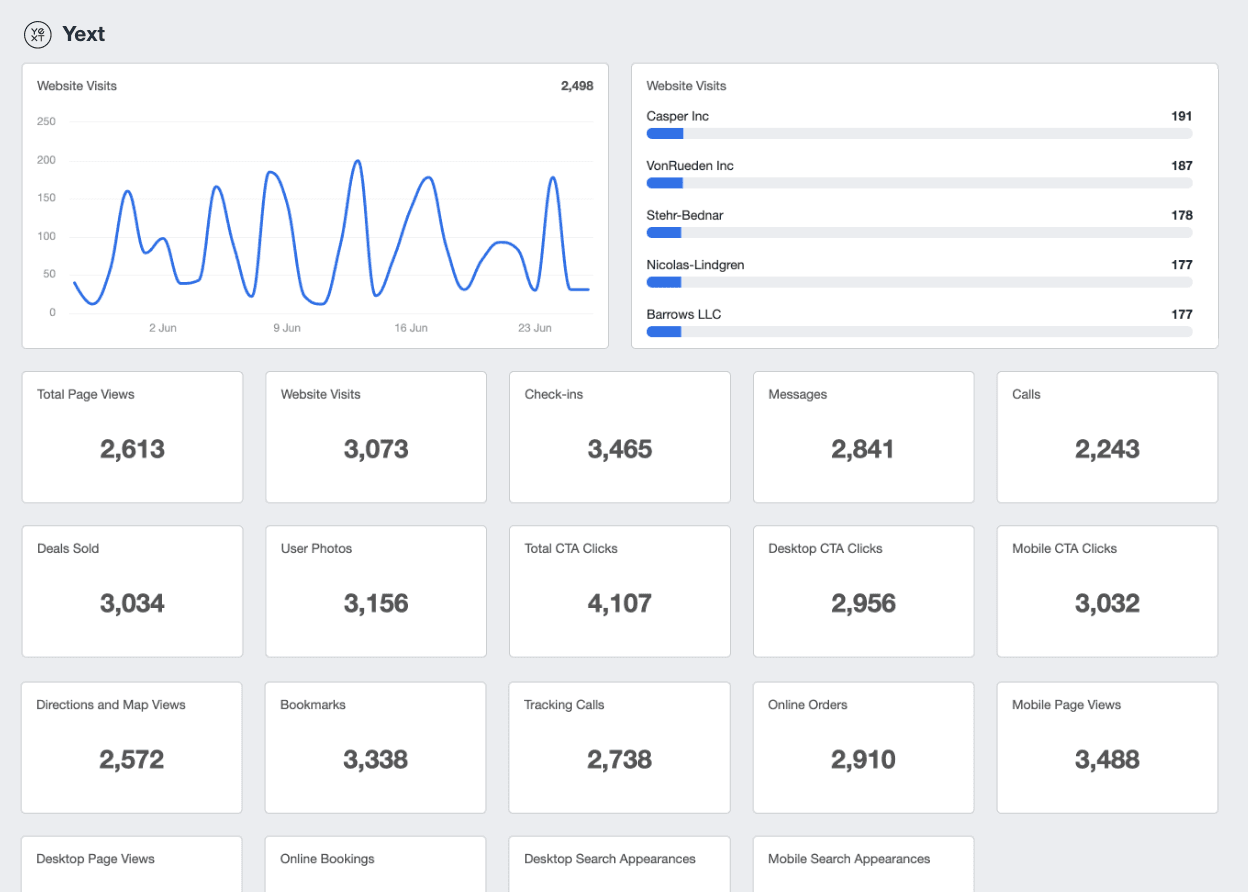
Yext is a listings management tool that helps users control how clients appear across directories, review sites, and local search. This ensures business information is accurate and consistent across hundreds of platforms, improving local SEO and brand visibility.
Agencies use Yext’s integration with AgencyAnalytics to track listings performance alongside other core SEO KPIs.
Yext top features
Listings sync: Updates brand info across hundreds of platforms in real time.
Review monitoring: Aggregates reviews and sends alerts when new ones arrive.
Local SEO scans: Identifies duplicate listings and NAP inconsistencies.
Review response tools: Helps manage responses to reviews from within Yext.
Yext pricing
Pricing starts around $199/year per location, but plans are customized to user needs. A custom quote is required for exact pricing.
Podium: Best for real-time customer engagement
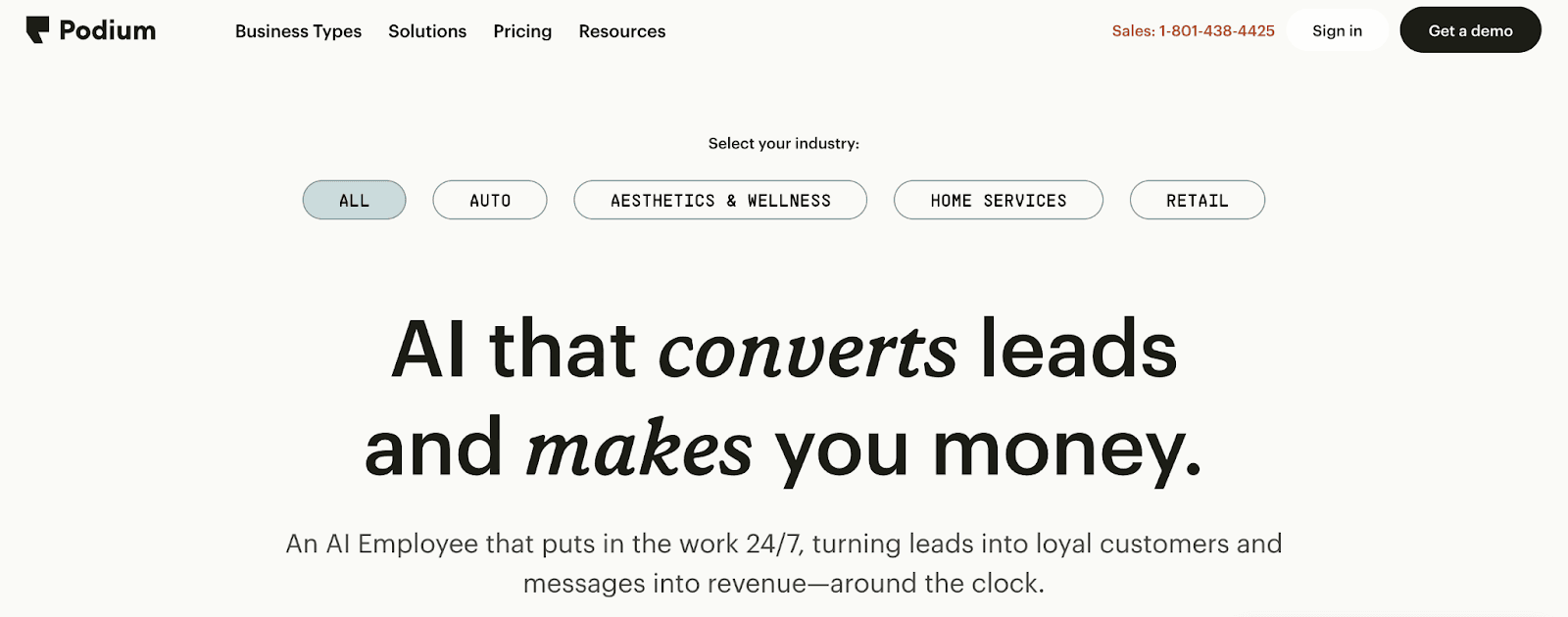
Podium lets users send automated text requests for Google reviews, respond to messages, and monitor incoming feedback in real-time across platforms like Facebook and TripAdvisor. It helps local businesses collect more positive feedback, catch issues early, and maintain strong profiles on the platforms that matter most.
Podium top features
Text review requests: Sends SMS prompts to drive higher review rates.
Unified inbox: Centralizes messages, reviews, and payments into one feed.
Web chat & widgets: Captures live site interactions and encourages review submissions.
Payments & transactions: Lets users handle transactions within the chat flow.
Team collaboration: Assigns messages or review replies to team members.
Podium pricing
Pricing starts at around $250/month, but is customized to user needs. A custom quote is required for exact pricing.
Trustpilot: Best for ecommerce and SaaS reputation
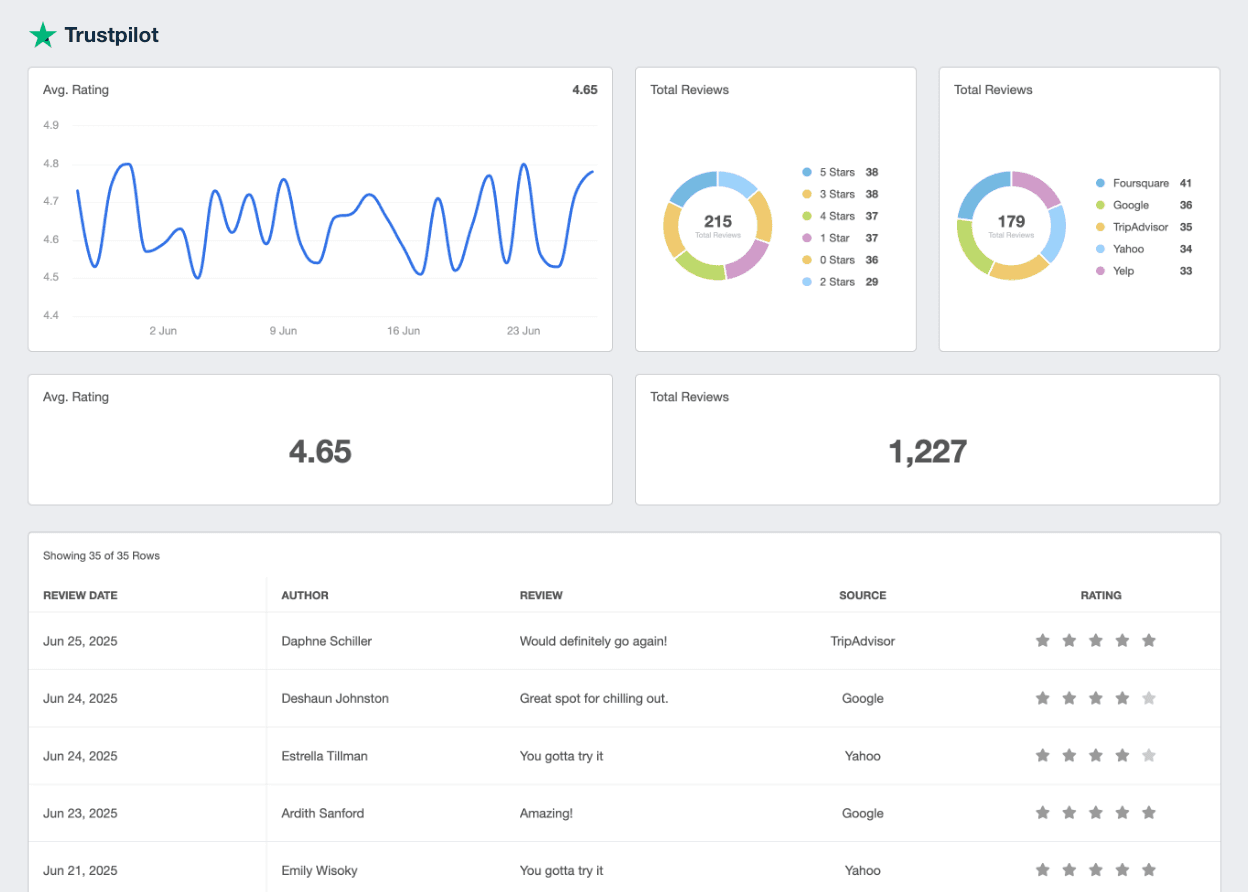
Trustpilot is a well-known review platform, especially for ecommerce and SaaS brands. The site collects and manages customer reviews that are likely to rank prominently in branded search results, so it's an important one to manage and monitor on behalf of your clients.
Implementing Trustpilot’s integration with AgencyAnalytics lets agencies monitor Trustpilot reviews directly in client dashboards, giving visibility into reputation trends as part of ongoing SEO reporting.
Trustpilot top features
Verified reviews: Ensures reviews come from real customers to boost trustworthiness.
Review themes: Organizes feedback by topic to identify trends and improvements.
Rich snippet support: Displays star ratings in search results to improve CTR.
Review invitation tools: Automates requests sent via email or in-app prompts.
Review analytics: Tracks review volume, ratings, and sentiment over time.
Trustpilot pricing
Plans start at $299/month, and a free plan is available with basic features like 50 automated review requests per month, and the ability to flag erroneous reviews.
NiceJob: Best for small business trust building
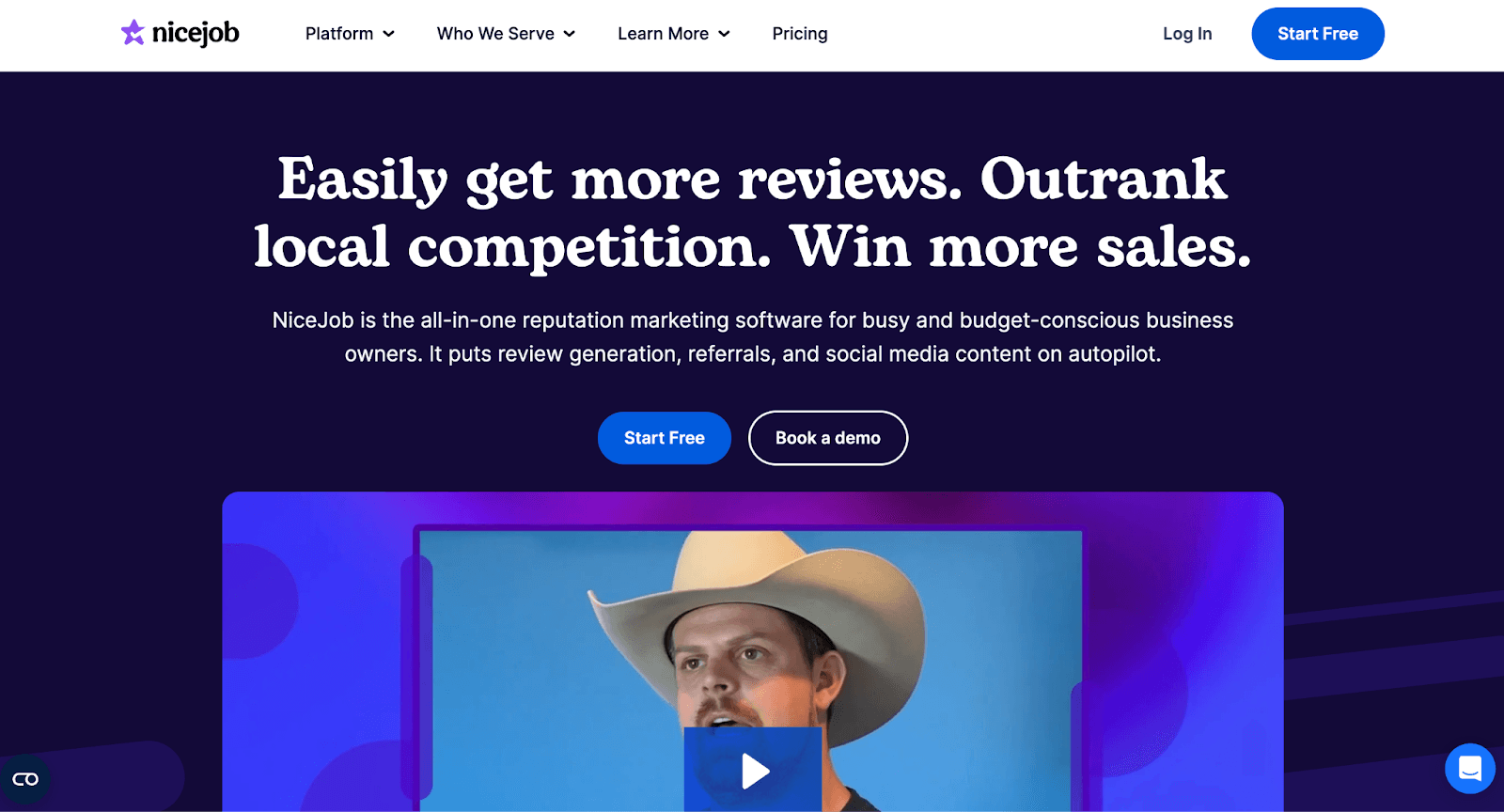
NiceJob automates review requests and helps generate customer stories from positive feedback. Primarily used by small to mid-size service businesses, it helps companies collect more online reviews to build local trust. For agencies niching in local service providers, it's a helpful tool in your toolkit.
NiceJob top features
Automated review requests: Sends post-service invites to collect reviews.
Boost tools: Encourages more reviews through reminders and incentives.
Marketing templates: Converts reviews into social and website-ready visuals.
Review alerts: Notifies teams of both positive and negative reviews in real time.
Reputation manager: Displays review widgets on client sites.
Social share tools: Encourages sharing of positive reviews on social platforms.
NiceJob pricing
Plans begin at $75/month, and a 14-day free trial is available.
BrandMonitoring.ai: Best for tracking SERP changes
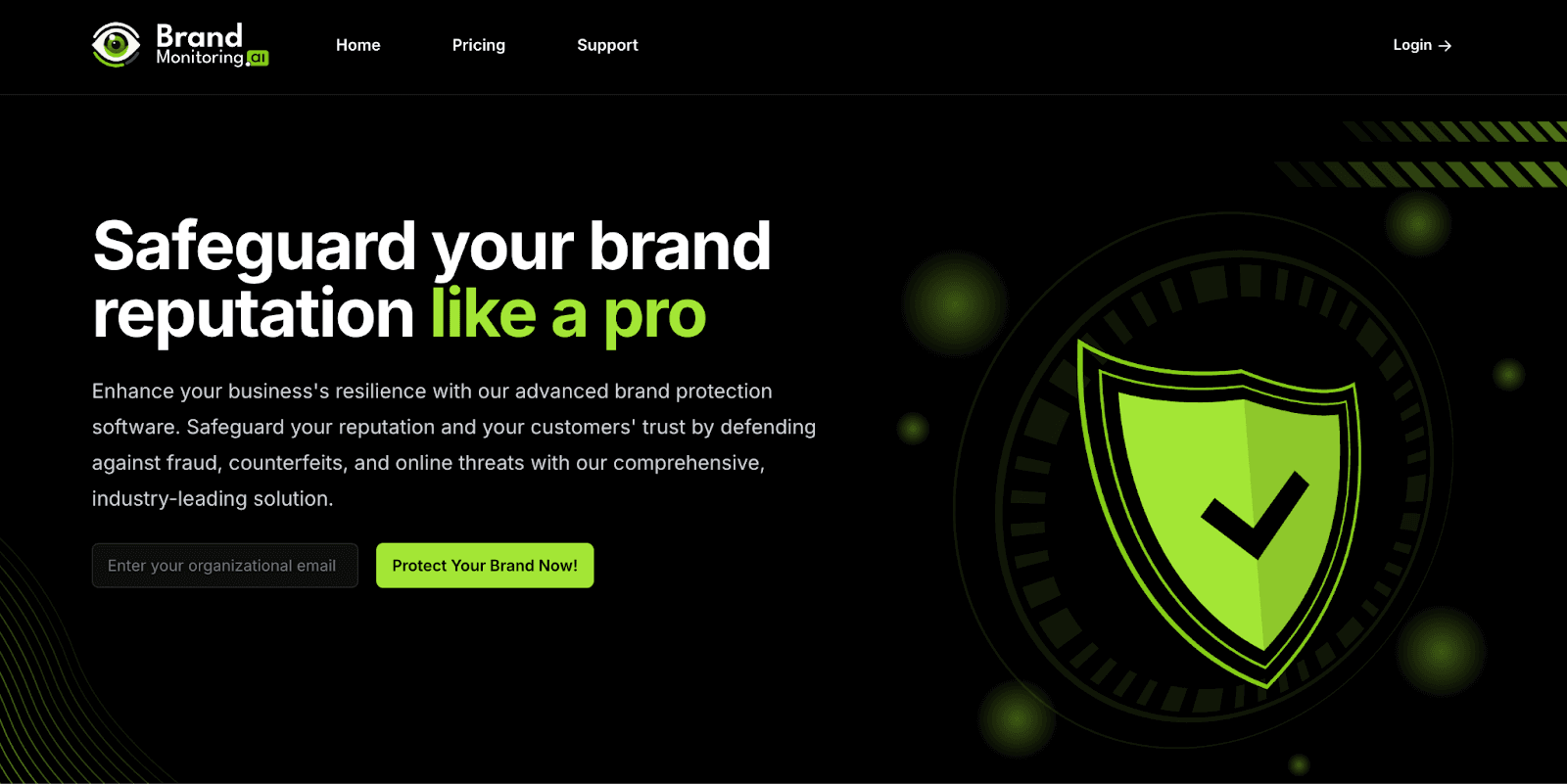
BrandMonitoring is a SERP tracking tool that helps users monitor search results for branded keywords, including review sites, press, social profiles, and third-party brand mentions. It also tracks ranking changes, helping users detect new content that appears on page one, and flag risks like negative press, outdated pages, or competitor mentions.
BrandMonitoring.ai top features
Branded SERP monitoring: Tracks which pages appear for brand terms and alerts on changes.
Real-time alerts: Notifies users when new negative content or reviews appear.
Competitor presence tracking: Monitors how competitors rank for shared keywords.
Historical visibility reports: Tracks brand visibility trends over time.
Issue detection: Flags outdated or inaccurate content needing suppression.
BrandMonitoring.ai pricing
Pricing information is not publicly available for BrandMonitoring.ai, and users need to contact their team for a quote.
Compare the top SEO reputation management tools side by side
Here’s a table providing a high-level overview of the tools listed above:
Tool | Best for | Cons | Pricing |
|---|---|---|---|
BirdEye | Centralized review management | Review content and dashboards feel cluttered, limited customization for automated workflows | Approximately $299/month, custom pricing |
reviews.io | Review aggregation and response | On cancellation, collected reviews may become inaccessible or disappear entirely | From $29/month, free trial available |
Yext Digital Presence | Business listing control | Listings created through Yext may not display or index in Google, reducing visibility gains | Approximately $199/year per location, custom |
Podium | Real-time customer engagement | Some users report difficulty customizing message workflows and chat widgets | Approximately $250/month, custom pricing |
Trustpilot | Ecommerce / SaaS review reputation | The review ranking algorithm and flagging logic is opaque, making it hard for users to understand | From $299/month, free plan available |
NiceJob | Small business trust building | Reporting is lightweight and doesn’t provide deep analytics or segmentation | $75/month, free 14-day trial available |
BrandMonitoring.ai | Tracking SERP changes | Focused solely on SERP monitoring, with no built-in review or engagement tools | Custom quote only |
Bonus: Track your agency’s SEO efforts with AgencyAnalytics
Managing clients' online reputations requires you to proactively cultivate a positive online presence for their brand—and that starts with reliable tracking of keywords, reviews, and mentions.
AgencyAnalytics helps agencies consolidate client reporting into a single, centralized dashboard. This saves you time and gives clients clear visibility into their brand’s reputation and overall marketing performance.
Core capabilities that support SEO reputation management include:
Branded keyword tracking to monitor first-page search results
80 + integrations with core marketing, SEO, and advertising tools for consolidated reporting
Customizable dashboards to track mentions, reviews, and rankings in one place
Automated reports with SEO reporting best practices baked in
Multi-location reporting for agencies managing franchises or regional businesses
Want to see how AgencyAnalytics improves your client reporting process? Try it free for 14 days!
Conclusion: Elevate your agency’s online reputation
Reputation management should be a core pillar of every brand's SEO strategy. If branded search results surface negative reviews, customer complaints, or irrelevant content, it damages the perception of the brand in the eye of the searcher—and this is what makes SEO reputation management important.
When a prospective buyer searches a business online, it's essential that high-quality, valuable, and positive results appear. By following the best practices and tactics outlined in this article, you'll improve the online reputations of both your clients and your agency brand. Not only will your clients earn more customers, but you'll be sure to attract more clients, too.

Written by
Kyra Evans is the Manager of Content Marketing at AgencyAnalytics. She has over 15 years of experience writing content for SaaS, tech, and finance brands. Her work has been featured by HuffPost and CBC, and she serves an engaged social media readership of over 30,000 community members.
Read more posts by Kyra EvansSee how 7,000+ marketing agencies help clients win
Free 14-day trial. No credit card required.



